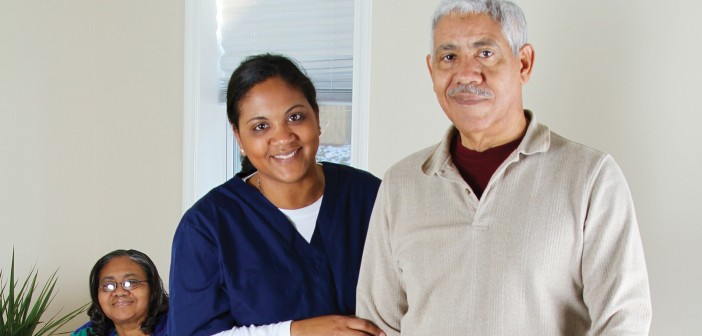Myth: Home caregivers don’t care about their patients.
Reality: Nurses, therapists and aides base their treatment on individual needs. A professional will establish a rapport, make the patient feel at ease, address their hesitations and make the experience as comfortable as possible. A patient’s needs are analyzed before a caregiver is placed in the home, so that the match will be successful.
Myth: Patients have no say about who comes to their home.
Reality: Reputable agencies will match the caregiver’s interests and personalities to the patient. If it is not a good match, the agency will choose another aide to care for the patient.
Myth: The quality of home care is inferior to that offered in a facility.
Reality: The staff of a reputable home care agency is extensively trained before they ever enter a person’s home. Ask the agency representative what training their aides are required to have and whether they are knowledgeable about senior health and trained in CPR. Also ask whether they are supervised to regularly evaluate the quality of care they are providing.
Myth: Home caregivers steal from the elderly and/or abuse them.
Reality: The data says that those kinds of crimes are committed by unskilled, independent caregivers who are not hired through a reputable agency. Ask the agency representative about criminal background checks, and if the agency is licensed and bonded.
Myth: Home health care is expensive and only wealthy people can afford it.
Reality: According to Genworth’s 2015 Cost of Care survey, the national median hourly rate for home care is $20. In contrast, the national median cost of a one-bedroom residence in an assisted living facility is $3,600 per month. So, for the same money, a person could receive six hours of care per day and continue living in their own home.
Myth: If a family member is caring for a loved one, there is no need for additional help.
Reality: According to the Harvard Medical School Family Health Guide, a caregiver, including a family member, should never be on-call 24 hours a day. People who are emotionally and physically exhausted or guilt-ridden cannot provide good care. Everyone needs respite and relief. Professional aides can provide a break from the rigors of full-time caregiving, without having to remove the patient from familiar surroundings. The simple fact is that most seniors want to stay in their own homes.
About the Author: Al Jones MBA, CSA, CDP has been in the home health care business for 15 years. The founder of Comfort Keepers® is a Certified Senior Advisor (CSA), Certified Dementia Practitioner (CDP) and holds an MBA from Baker College. Al has been on the National Advisory Council for Comfort Keepers and is currently on the board of the Michigan In-Home Care Association (MICA).
Rustle / Shutterstock.com








